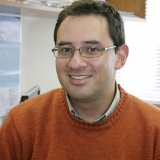Produciendo por Mi Futuro (PxMF) is a poverty-reduction intervention, implemented in Colombia
by Prosperidad Social, which is based on the graduation programs initially developed by the BRAC
Development Institute of Bangladesh and later by the Ford Foundation in eight countries
around the world. Like other graduation programs, PxMF seeks the integral support of the
population living in extreme poverty and victims of forced displacement; PxMF offers a package that includes training activities, coaching and a cash transfer of about 500 US dollars to each participant for developing a household business. Using the biographical method called Life Stories; this study carries out a qualitative evaluation of PxMF, examining the poverty dynamics of households, their socioeconomic condition at the beginning of the intervention, the exogenous factors and shocks that affect them, and the role of the intervention in their lives (changes in attitudes and behavior). We find that there exists a high heterogeneity in the dynamics of poverty of the participants as well as in the particular characteristics of the households at the time of the intervention; these differences affect the performance of households in terms of the results expected by the program. Shocks are also identified, mainly climatic ones such as extreme droughts, which affect the results in rural households whose productive activities are agricultural. Finally, we identify the channels and mechanisms through
which it is possible, in some cases, to attribute to PXMF the positive changes found in
socioeconomic variables of interest.
Qualitative evaluation of the Poverty- Alleviation Program Produciendo por mi Futuro in Colombia
Country

